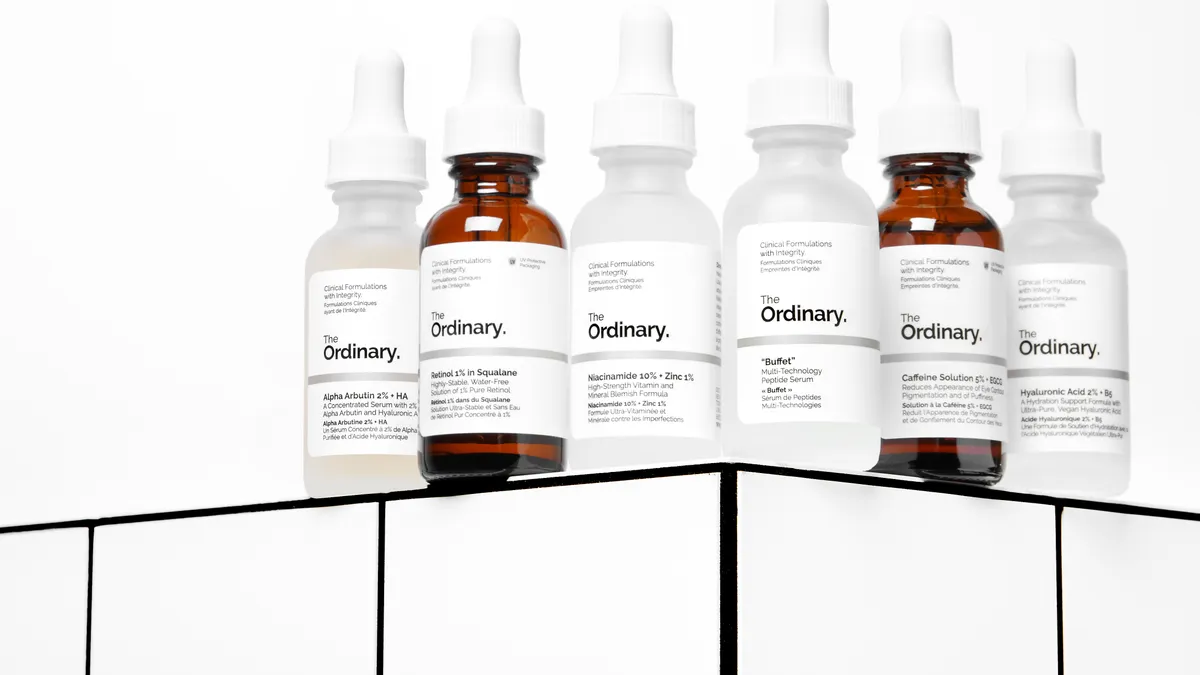Dive Brief:
- Estée Lauder's Deciem business is dropping its HIF, Hylamide, Abnomaly, and The Chemistry Brand lines, with customers able to buy their products until their inventories run out, according to a company Instagram post.
- Deciem's focus will be on its remaining brands: NIOD, (which stands for "non-invasive options in dermal science"), and The Ordinary, per the announcement.
- The company said in the post that Deciem is entering its 10th year. The business has been in the Estée Lauder stable since last year, when the beauty conglomerate took a controlling stake for $1 billion after making its first investment four years before.
Dive Insight:
Ever since its first investment into Deciem in 2017, Estée Lauder sought to tame the cult business and its eccentric founder.
In 2018 the beauty conglomerate took to a Canadian court to oust Brandon Truaxe after he made a series of irrational business moves and posted meandering messages on social media, which included vague claims that Deciem was somehow involved in criminal activity. Truaxe died a few months later.
Now, more fully in control, the beauty giant is shaking up the operation. Estée Lauder didn't immediately return a message asking for the company's rationale for dropping the four Deciem brands. A Deciem spokesperson declined to comment, except to say that the move is "a monumental and natural progression for Deciem as an incubator of good," with The Ordinary and NIOD remaining at the forefront while other efforts are underway.
But Estée Lauder is likely in search of growth — something that may seem inevitable but could be a risk to Deciem's original market disruption and consumer appeal.
During Estée Lauder's most recently reported quarter, when net sales rose 11%, Deciem sales contributed about 3 points to that growth, according to an earnings call transcript provided by the company. Gross margins at Deciem, whose disruption has centered in part on value pricing, dragged overall company gross margin at Estée Lauder, but "strategic price increases and favorable currency" helped push gross margin up 20 basis points in the period, according to Chief Financial Officer Tracey Thomas Travis.
















